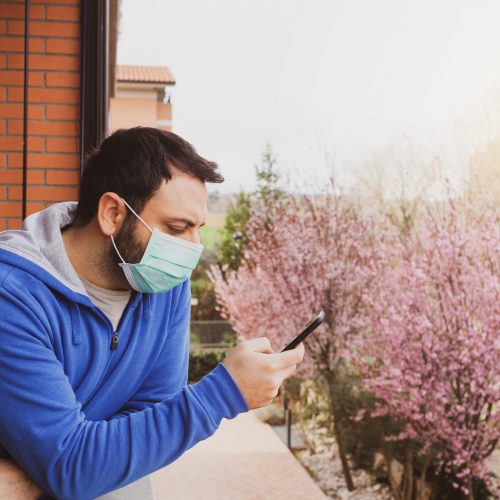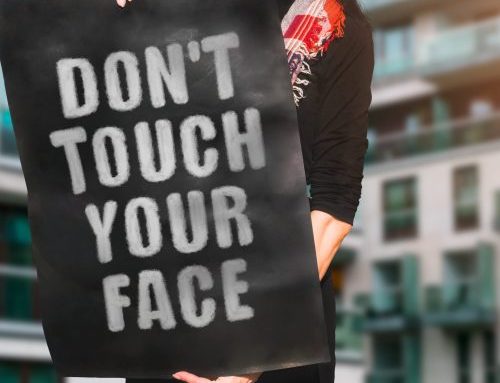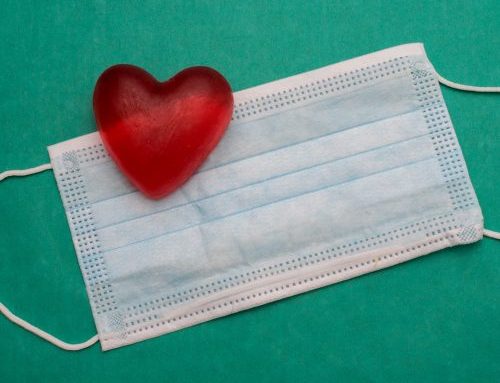Throughout the COVID-19 outbreak, the CDC and every news source has told us repeatedly how we should respond to the Coronavirus:
- Stay in the house
- Limit contact with other people
Although I am completely in favor of doing whatever we can to limit the spread of this disease, as a psychologist this guidance concerns me. That’s because whenever I meet with patients who are struggling with anxiety and depression, there are two things I always tell them to do:
- Get out of the house
- Spend time with other people
As you can see, these two sets of guidelines don’t agree.
When anxiety and depression come on strong, getting out of the house and spending time with people are simply not what we want to do. Even though we know it will help, when life is hard we just don’t want to. In fact, these actions may feel like the last things we want to do. Staying at home and watching Netflix sounds like a much better option. But falling into this pattern of behavior will only make our anxious and depressive symptoms worse.
Let me explain. Are you feeling down? If so, then you probably want to isolate, check out, and step away from the stresses of life for a while. But when you isolate you start to feel lonely. And then this loneliness makes you feel even worse than you did before– “I really am all alone and no one wants to be with me. I knew it!” Your actions have created a negative feedback loop that goes round and round, just making you feel worse. I had a patient tell me just this morning that all he wants to do is go in his room, close the door, turn off the lights, and crawl under the covers. Even though he knows these actions won’t help him, his depression lures him like a mythological siren, leading him to do the very actions that will make his symptoms worse.
Maybe you are struggling with anxiety or depression. Or maybe you know someone who is. If so, what should you do?
Follow the guidelines of the CDC. Practice social distancing. Work to keep yourself and those around you safe from this pandemic, and do your best to not pass it on to others. And at the same time, be diligent about working on your mental health.
- Get out of the house. Even if it is just to walk around the block.
- Stay in contact with people. Do not isolate! Social distancing does not mean social isolation. Even if it’s just making a phone call or sending a text, reach out to people.
- Exercise. The gyms may be closed, but exercise is incredibly important, especially when you are feeling down. Find some way–any way– to do it.
- Eat well. Do your best to eat regular, healthy meals on a normal schedule. Fight the temptation to snack on junk food all day.
- Sleep well. Be careful of sleeping too little, or sleeping too much. Even though schools are out and many are working from home, do your best to maintain a regular sleep schedule
- Limit alcohol and drug consumption. Although they provide a temporary respite, using alcohol and drugs to cope through hard times makes your situation worse in the long run.
- Pray. Spend time in prayer, meditation, and other spiritual practices.
- Call someone else who may be struggling. A simple phone call may be just what they need, and it will probably make you feel better too.
- Do something kind. Help a neighbor in need, donate to a charity, or find some way to do a good deed.
- Reach out if you need help. You are not alone. When you feel isolated, find someone to talk to.
If you have a friend or family member who struggles with anxiety or depression:
- Check on them. Send a text. Make a call. Let them know you care.
- Interact with them. Even playing video games online provides a way to stay connected
- Engage with them on social media. Send them a message. Comment or like their post.
- Video Chat. Take the time to see their face, see how they are doing, and stay connected.
- Send a card, letter, or package. I hear about these acts of kindness in my office all the time. They mean more than you think.
- Drop off some cookies or a snack at their doorstep.
During these uncertain times, take care of your physical health, but also take care of your mental and emotional health. If you need someone to talk to, reach out to a friend, a family member or a professional counselor. At Grace Counseling, we are working hard in this season to provide services in person, over the phone, or over video platforms to help in any way we can (current patients just need to fill out our Teletherapy form, and email to your provider and our front desk staff). If you need to talk to someone, contact our front desk at 720-489-8555 and we will find a professional that can talk with you right away. We want to help.
There is hope. These are tough times, but we can get through them together.
Dr. Michael Ballard, PhD





